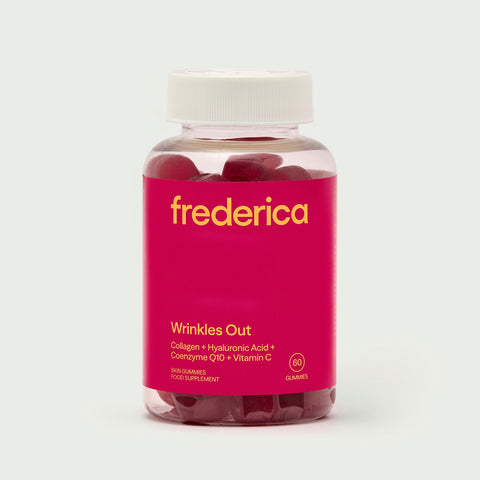Taking proper care of your skin isn't always easy. While the right product can keep it looking healthy for years, the wrong choice can completely ruin it. However, before treating the body's largest organ, it's essential to understand its type and observe its appearance and sensation after washing.
Skin types are categories used to describe how oily, dry, or sensitive skin is. This category is determined by the amount of oil or sebum a person's skin produces.
Regardless of skin type, it's essential to keep it clean, properly hydrated, and protected from UV light. People with drier skin may need heavier moisturizers, while those with oily or combination skin may prefer lighter moisturizers and sunscreens that absorb excess sebum.
THE DIFFERENT TYPES OF SKIN
As we can read on the official website of the CUF hospital network, "the type of skin we want is neither too dry nor too oily, flawless, radiant, with invisible pores, and where sensitivity is not a problem. However, unfortunately, we can't choose."
There are five skin types: dry, oily, combination, normal, and sensitive. Skin type is determined by genetics, and its condition can vary depending on the internal and external factors it faces.
Dry skin
Dry skin produces less sebum than necessary. This type of skin lacks the lipids it needs to retain moisture and build a protective shield against external influences. It typically has a rough, grayish appearance.
Oily skin
Oily skin produces more sebum than necessary. It typically appears greasy and shiny (especially around the nose and forehead). It has larger pores that clog easily, making it more prone to pimples.
Combination skin
People with combination skin have some areas of their skin that are oily, while others appear drier. Areas prone to oiliness include the forehead, nose, and chin (the so-called T-zone).
Normal skin
This term is commonly used to describe skin that is not visibly oily, dry, or sensitive. Normal skin produces enough sebum to stay evenly hydrated without becoming oily, and is considered balanced. It has fine pores and a velvety, even texture.
Sensitive skin
Sensitive skin can become easily irritated or inflamed. A person with this skin type may experience itching or burning when applying certain products, as well as notice visible reactions to certain substances (swelling, hives, or flaking). Sensitive skin isn't determined by the amount of sebum a person produces. People with dry or oily skin can also have sensitive skin. In some cases, sensitivity is related to dermatological problems such as eczema or rosacea.
ATOPIC SKIN
Atopic skin occurs when the epidermis and dermis don't function as usual, undergoing specific genetic mutations in their constituents and the immune system. When very dry, the skin no longer performs its role as a barrier against external aggressions. This is a chronic inflammatory disease characterized by itching, dry skin, and red patches. To combat it, hydration is essential. Bepanthen SensiControl emollient cream is specifically formulated for the daily care of atopic skin, helping to space out flare-ups of extreme dryness for at least three months. This cream contains prebiotics that stimulate the bacteria in the skin's protective microflora, strengthening the skin barrier and providing deep hydration for 24 hours.
HOW TO DETERMINE YOUR SKIN TYPE?
To determine your skin type, Medical News Today recommends:
- Wash your face with a mild product;
- Dry with a clean towel;
- Observe how the skin looks immediately after washing;
- Observe how this changes in the following hours.
According to the aforementioned American health publication, dry skin will remain dry after washing and may also appear dull, rough, or flaky; oily skin, on the other hand, may appear dull after washing, but will become shiny or oily within a few hours (the oil will be visible if you wipe your nose with a tissue); combination skin will eventually have a shiny or oily T-zone; normal skin will remain clear, without changing much throughout the day; and sensitive skin may sting, burn, or itch after washing.
According to the SPDV – Portuguese Society of Dermatology and Venereology, you can easily determine your skin type by "running your finger along the bridge of your nose at different times of the day." However, for a thorough and accurate assessment, consult your dermatologist.
What is the best way to clean your skin?
"The skin needs regular hygiene care, although a full bath every day is not absolutely necessary, particularly for older people and those with drier skin," explains the SPDV – Portuguese Society of Dermatology and Venereology.
"When washing the skin, use lukewarm water, and use gentle hygiene products (with little detergent effect) to avoid damaging the outermost horny layer of the skin, which is responsible for maintaining hydration balance and other skin defense functions. Prolonged baths with very hot water and highly active soaps can dissolve the fat between the cells, damaging the cement that holds the bricks together and causing the wall to crumble."
People with drier skin benefit from "applying a moisturizer right after bathing," which "can increase water retention in the skin and provide a fat supplement that improves its texture," concludes the SPDV.
Sources: Medical News Today and Brazilian Society of Dermatology and Venereology

































